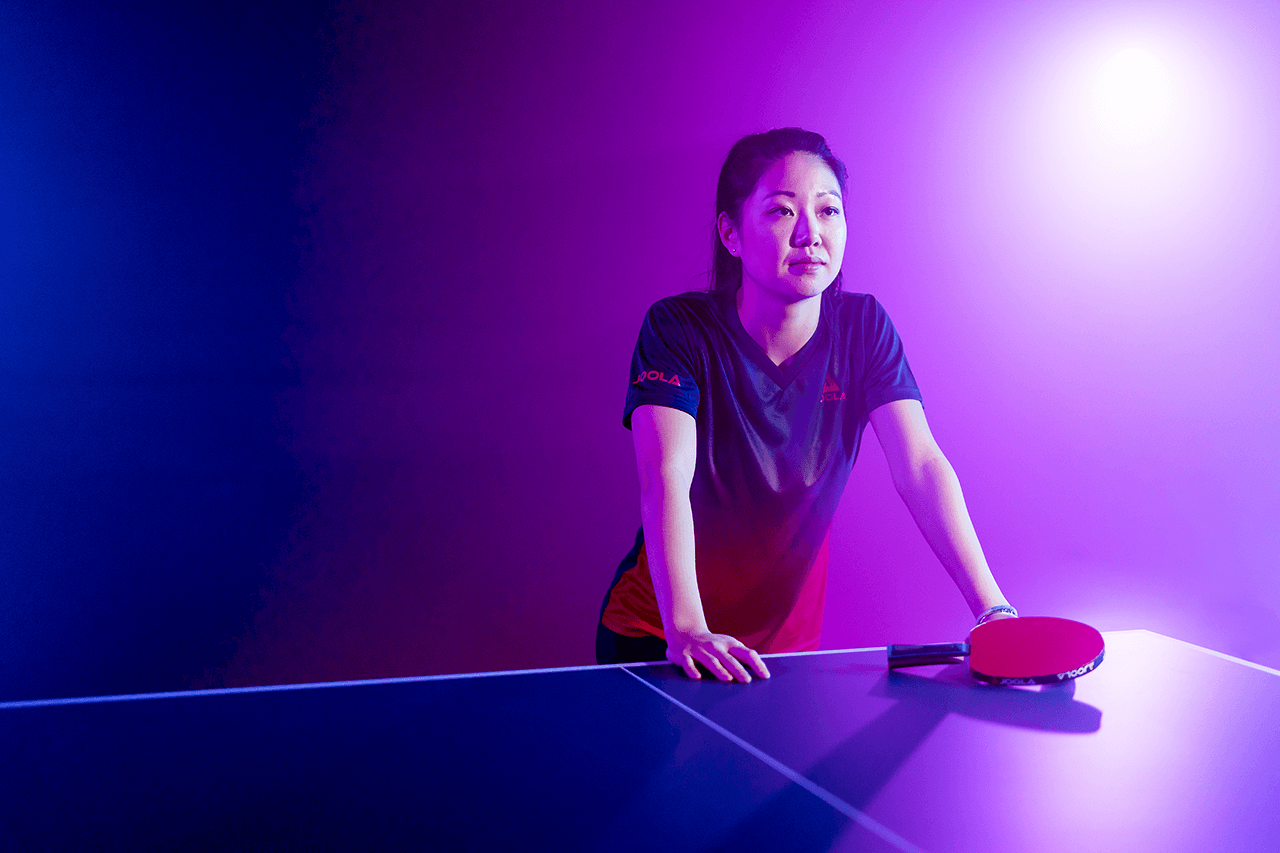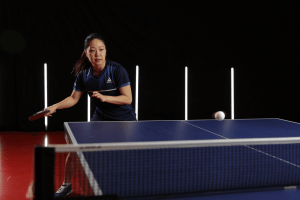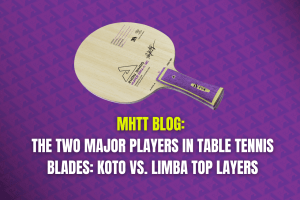I’ve started, trashed, and restarted this post too many times to count by now. It’s been almost 3 full weeks since the flame flickered out in Tokyo and as I sit down to write this, I feel a bit at loss for words. There’s a multitude of feelings snaking, swirling their way around and through me, feelings of gratefulness, heartbreak, even numbness, each clambering to claim their solitary throne in my head. A jumbled mess.
This probably won’t be like my usual blog posts that are often peppered with positivity and words of encouragement. An easily digestible lesson you can take away at the end. I could write that despite the pandemic and postponement of the games, I bounced back to train with ferocious intensity and motivation. I could tell you that I had the time of my life in Tokyo. I could even say that I’m itching to get back on the table, to resume a mentally and physically demanding training schedule. Everyone loves a success story. Unfortunately, that’s not often the truth. I mean, you would never be able to tell by my Instagram, but that’s social media for you, isn’t it? We’re all fine online. No, not just fine. Thriving. We post the best parts of our life, subtly boasting to the world. Look at all the wonderful places I get to travel to! Check out this aesthetically pleasing plate of avocado toast! How terribly easy it is to pretend. The shimmering rays of sunshine we beam proudly on the surface, the icebergs we bury so deeply beneath.
My feed is no different. The truth is, this year has been one of the toughest years of my life. I’ve struggled with bouts of depression and anxiety in the past, but it’s never been worse than the past year. Yes, there have been some incidents in the year that have deeply exacerbated my mental health decline and perhaps one day, I will feel ready to share, but for now, please bear with me as I try and articulate my experience as best I can.
The months that led up to Tokyo felt like a blur. All the days bleeding into one. Every time someone asked how I was doing, I’d clench my fists and desperately try to hold in the tears that would bubble up, threatening to spill over. The words that came out told a different story. I’m doing great!, I’d say. I wasn’t great. But how could I tell them the truth? That it’s been sleeping all day but feeling constantly tired. Crying into the pillow until my eyelids swelled in grotesque size. Scrambling to cover the red puffy splotches with makeup the next day. Being overcome with violent waves of nausea without explanation. Feeling impossibly overwhelmed by even the smallest of tasks. And it’s not that I didn’t want to dispel this suffocating weight. Many times I have come close to opening up, but was afraid to put a damper on the mood or cause any discomfort. The last thing anyone wants to be is a burden. So instead, I’d put on a smile and lie through my teeth, feeling like the biggest fraud on the planet.
I tried to ignore the signs, to focus the little energy I could muster on this singular goal. The Games. It was the only thing that mattered. I refused therapy, neglected self-care, pushed away loved ones, and isolated myself, all the while convincing myself that it was simply unrelenting dedication to my craft. The more I withdrew, the more this aching tiredness sunk its unforgiving teeth into my bones, building a comfortable home for itself there. Without even realizing it, I had become a shell of a human, a stranger to myself. The eyes that stared back at me in the mirror were sunken, empty, broken. No, they were not my own.
By the time Tokyo rolled around, I was in complete disarray on the inside. The stress and adrenaline from the Games propelled me through my matches, but they were unremarkably average. I reached the third round in Women’s Singles, the same round as my 2016 Rio run. At the time, I attributed this devastating, yet strangely peaceful feeling eating at me directly after the match in part due to the fact that I wasn’t able to improve my result from the last Games. But I only now understand it was relief. Relief that it was all finally just over.
Only a day later, news broke out that Simone Biles had withdrawn from the gymnastics team finals. I was stunned. What’s crazier is that my immediate reaction to the large headline plastered across my phone wasn’t hey is she okay?, but rather, how is the team going to win gold without her now? Process that for a second. In my warped, twisted mind, winning meant more than health.
You know, I always thought I could handle everything by myself. Asking for help was a sign of weakness. Athletes push and push themselves to the limit, to the brink of exhaustion. No pain, no gain. But what happens when the pain becomes too much? Well, if it’s a physical injury, we take a break. We go to numerous doctor’s appointments, assess the point of injury, and put in the necessary time and effort to rehabilitate. There are no questions, no comments, no doubts about why we treat the hurt.
What about the other side of the spectrum? While there have been efforts to create safe spaces for athletes to seek help, there are still significantly fewer resources allocated towards mental health. Most of all, it’s the stigma that dissuades many athletes from taking the first step. There’s shame, guilt, humiliation. Because it’s not a broken arm or a strained hamstring, because the pain isn’t visible to the naked eye, then there must be something deeply wrong with you. You, as a person.
I’ve talked to people, even other athletes, who criticize Simone Biles or Naomi Osaka for “quitting.” She just can’t handle the pressure, she signed up for this, it’s her job to push all the way till the end, they’d say. That’s not how I see it. For an athlete, it’s one of the hardest things to shove away your ego and recognize when you need to step aside. Simone and Naomi said hey, maybe you don’t need to sacrifice your well-being for a medal or a title. Call them weak, but to me, they’re trailblazers, paving a path that allows athletes to finally feel seen, valid, and most of all, human.
I may not have nearly as large of a platform as Simone or Naomi, but I want to do my part in being more transparent, honest. To let others know that they’re not alone by finally exposing this vulnerable side of my underbelly I’ve kept shamefully hidden for so long. We might feel crushingly isolated in our struggle but there is always someone out there who feels the same way you do. The more people that speak out, the easier it will be in the future. Let’s normalize nourishing our minds just as much as we do our bodies.
Slowly, painstakingly so, I am beginning to learn how to unpack the toxic mindset I’ve internalized over the years. Realizing that it’s okay to reach out for help. And it’s okay to not be okay. The healing process isn’t linear. Growth isn’t linear. It’s a continuous cycle of ebb and flow. There will be days where you will feel seemingly okay and then be engulfed by a helpless wave of grief the very next. Sometimes you just need to sit in all that grief and sadness and anguish and allow it to wash over you.
I won’t say that it’s easy. It still hurts like hell. But through all the pain and suffering, I’ve unearthed a resilience I never even knew I had. I welcome the first slivers of self-compassion into my soul. The voice in my head is gradually becoming gentler, kinder. Seven-year-old Lily who first picked up a table tennis racket that one fated day wouldn’t have even dreamed about playing in the Olympics, let alone in three. I look to her, someone who once saw the beauty in this sport, in this life.
So now you ask, what’s next?
Pausing. Taking a minute to breathe deeply. Reveling in how far I’ve come. And giving myself permission to just be.




